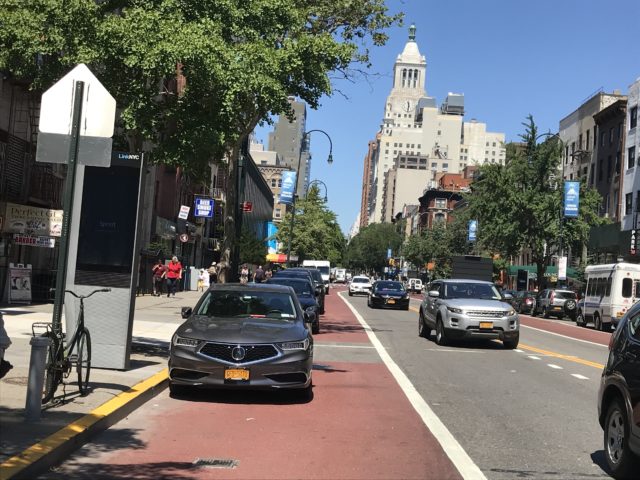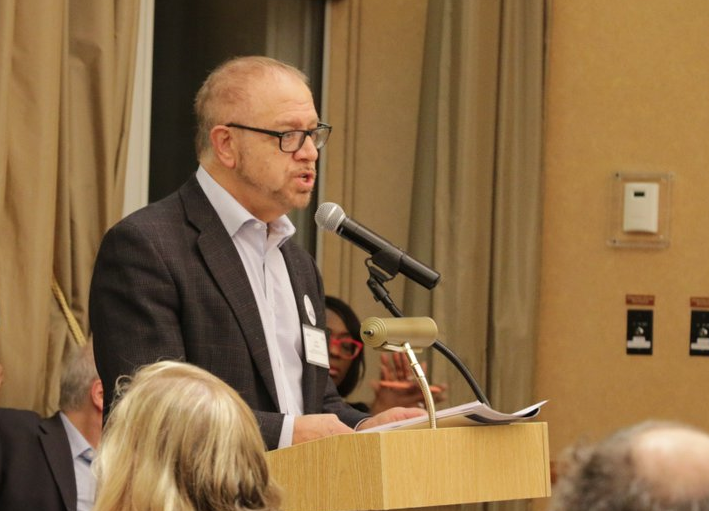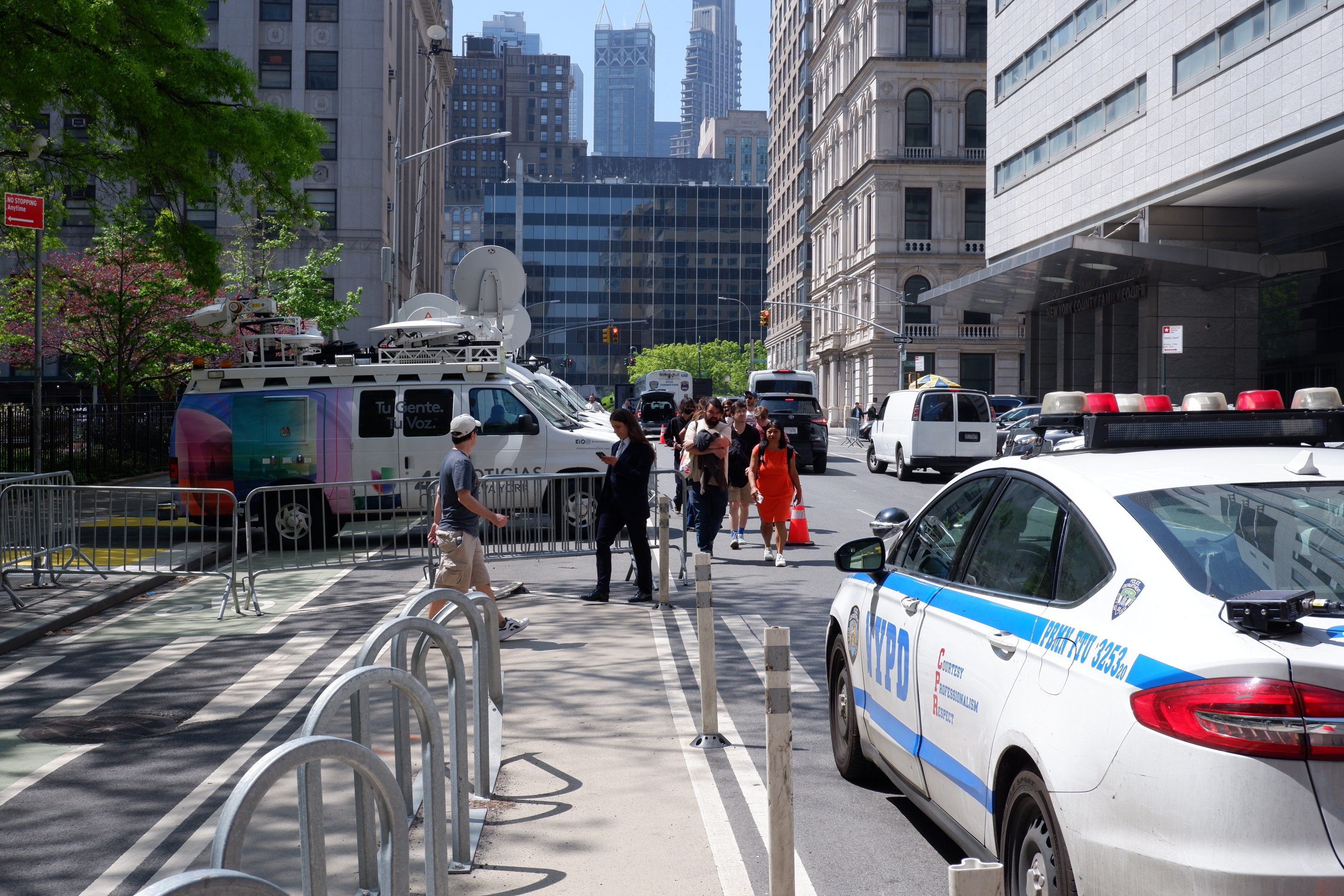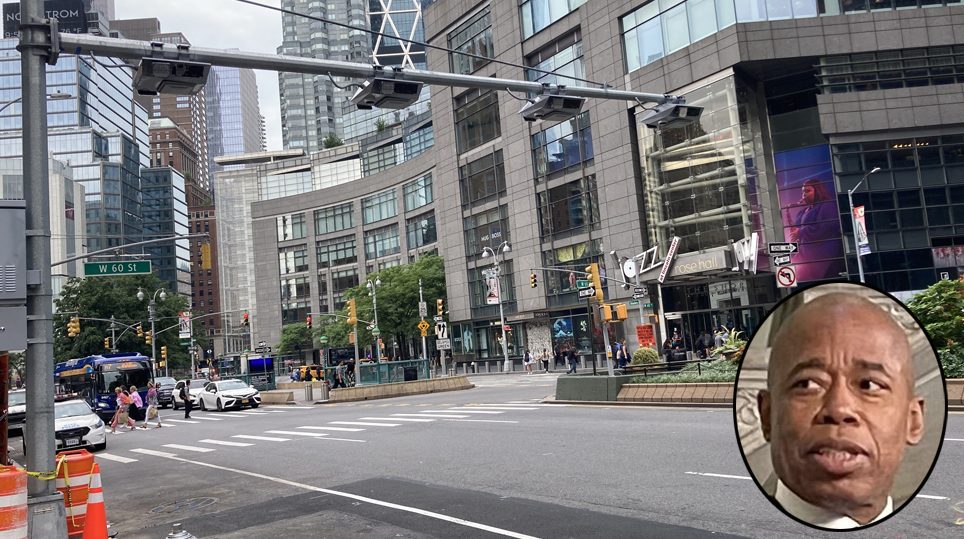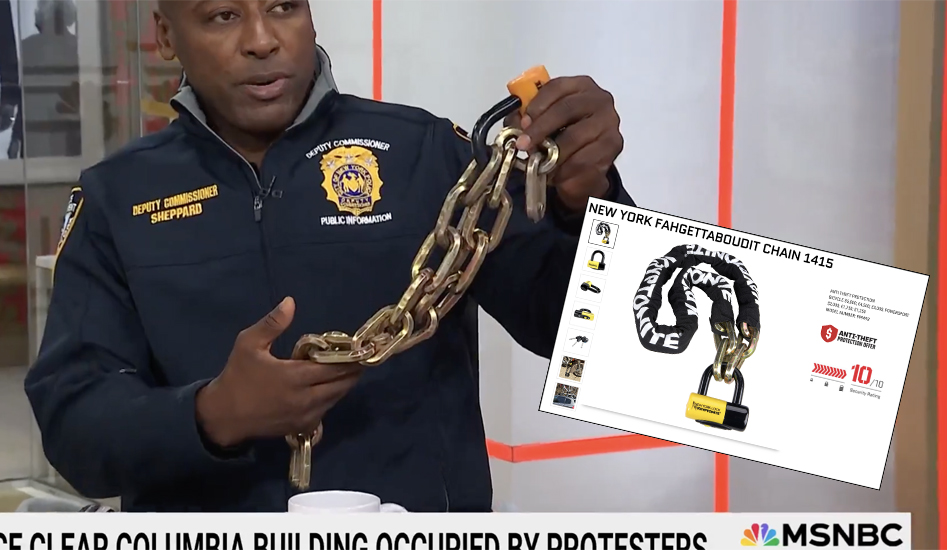Arthur Schwartz's win is a big loss for bus riders.
Instead of a celebratory unveiling of New York City's first car-free Busway on Monday, Schwartz's last-minute lawsuit against the transit improvement forced bus riders on 14th Street to struggle with the same old misery they've been dealing with for years: bus speeds so slow that riders would be better off walking.
As a result of a judge's order last week, the red paint on 14th Street signifying "Bus Only" lanes was instead covered with parked cars. The result? A bus ride from First to 10th avenues on 14th Street's new Select Bus Service took a whopping 25 minutes — and that's in the middle of a summer day, when there was very little traffic.
"Sometimes getting from Union Square to Avenue C will take a half hour," regular M14 rider Cindy Chin told Streetsblog. "Right now, school is out, so things have slowed down, but usually there's tons of traffic."
The crosstown trip took about as long as walking across 14th Street per a GoogleMaps prediction of the stroll. All along the route, car and truck drivers parked in the bus lane, forcing bus drivers to wait for cars to pass to pull back into traffic. Manhattan's SBS speeds are stuck at a glacial 7 mph, according to the MTA's Bus Performance Dashboard, which is bad enough. But Streetsblog's 1.6-mile trip crawled along at an almost inconceivably slow 3.84 mph.
Car drivers caused most of the delays — which can be laid directly onto Schwartz's lawsuit. The 14th Street busway design called for bus stops to extend into the roadway, so buses would not need to pull over and then fight their way back into a congested travel lane. But because the city plan was blocked, cars filled the entire ares, forcing bus drivers to wait for cars to pass before they could pull back into the roadway.
At a Busway rally-turned-protest, transit advocates railed against Schwartz as a fake progressive whose clients, wealthy West Village and Chelsea residents, have the resources to fight the city's transit plan, which would benefit tens of thousands of less-well-off bus riders. But beyond chanting, "Drop the suit" — and one person making the modest proposal to eat the rich — Schwartz's temporary win over the city wasn't an issue a protest could fix. Relief for congestion on 14th Street won't come until Aug. 5 at the earliest, the date of the next court hearing.
Until then, crosstown bus service is a failure on 14th Street — even with new additions like all-door boarding, which debuted on Monday, but is effectively useless. Schwartz's lawsuit argued that the city's busway plan would flood residential side streets with drivers who typically use — or store their private cars on — 14th Street.
Judging by the number of cars blocking the bus on Monday, he might even be right — but tens of thousands of bus riders are suffering all the same. Until Aug. 5 at the earliest, they'll be paying for the worst SBS service in the city.
